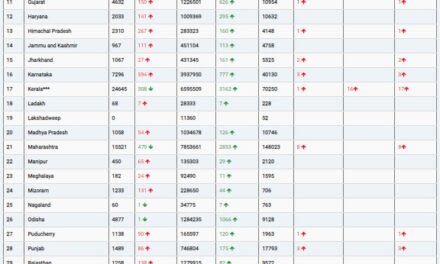Adolescents who spend more than three hours a day engaged in sedentary behaviors—including playing video games, reading for leisure, or excessive screen time—are at a higher risk of experiencing psychological distress in the future, according to a recent study published in the Journal of Adolescent Health.
Key Findings
The study, conducted by researchers at the Institute of Psychiatry, Psychology and Neuroscience at King’s College London, examined data from 3,675 adolescents as part of the Millennium Cohort Study. Findings indicate that teens who engage in prolonged screen-based leisure activities report increased levels of anxiety, depression, and stress at age 17.
However, moderate screen exposure (between 60 and 119 minutes per day) dedicated to educational activities, such as homework or virtual classes, was linked to reduced psychological distress.
The Growing Concern of Sedentary Lifestyles
Sedentary behavior among adolescents has become a pressing global health issue. A lack of physical activity combined with extended screen use has been associated with obesity, cardiovascular disease, and now, worsening mental health outcomes. The study highlights that excessive screen time and leisure reading beyond three hours a day may contribute to increased psychological distress, potentially due to social isolation.
Methods and Analysis
The study analyzed participants at two time points—ages 14 and 17. Adolescents documented their activities in a diary, categorizing them into different types of sedentary behaviors, including recreational screen time, educational screen time, and non-screen activities. At age 17, they completed a psychological distress questionnaire based on the Kessler Scale, assessing feelings of anxiety, depression, and restlessness.
Surprising Impact of Reading
Researchers found that while reading has traditionally been linked to positive mental health outcomes, excessive leisure reading (more than three hours per day) was associated with greater psychological distress, particularly among boys. One hypothesis is that prolonged solitary reading might reduce social interactions, contributing to isolation. Additionally, screen-based reading could be a factor due to potential disruptions to sleep caused by blue light exposure.
Video Games and Screen-Based Leisure Time
Professor Brendon Stubbs, the study’s supervisor, emphasized the significant role of video games in mental health outcomes. “Each additional hour of video game play was associated with a 3% increase in psychological distress,” Stubbs noted, suggesting a dose-response relationship between screen-based leisure activities and mental health risks.
However, he clarified that screen time itself is not inherently harmful; the type and purpose of screen use matter. Educational screen activities did not show the same negative effects as recreational screen exposure.
Recommendations for Parents and Educators
The study suggests several interventions to mitigate the psychological risks of excessive sedentary behavior:
- Limit recreational screen time: Keep leisure screen exposure under three hours daily to prevent increased psychological distress.
- Encourage structured educational screen use: Homework and virtual learning were associated with positive mental health benefits.
- Promote balanced activities: Encourage face-to-face interactions and outdoor activities to counteract excessive screen use.
- Implement gender-specific strategies: Boys and girls may engage in different screen-based behaviors, requiring tailored interventions.
- Support healthy reading habits: Encourage reading but ensure it does not replace essential social and physical activities.
Conclusion
Dr. André de Oliveira Werneck, lead author of the study, emphasized the complexity of sedentary behavior. “Interventions should focus on reducing specific prolonged sedentary activities that contribute most to psychological distress rather than eliminating screen use altogether,” he advised.
Disclaimer
This article is based on the study “Prospective Association of Sedentary Behavior With Psychological Distress Among Adolescents” (Journal of Adolescent Health, 2024). The findings are for informational purposes only and should not replace professional medical or psychological advice. Individuals experiencing mental health concerns should consult a healthcare provider.
For more details, visit the Journal of Adolescent Health website: DOI: 10.1016/j.jadohealth.2024.10.019.












